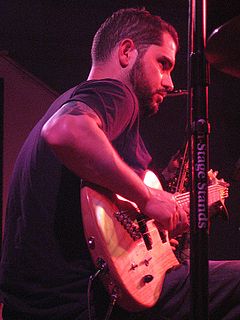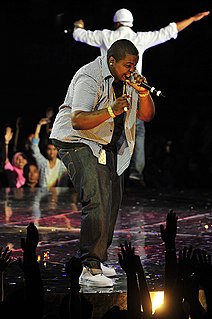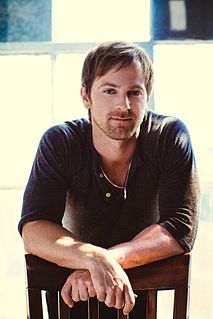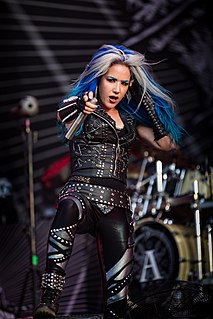A Quote by Eric Nam
A lot of my peers, be seniors or juniors, they'll text me or they'll call me and they'll say, 'Thank you for doing the music that you do because it pushes the genre forward in different ways.' It's a very rewarding thing to hear.
Related Quotes
I'm writing this down, because it is going to be hard for me to say it. Because this is probably our last time just us. See, I can write that down, but I don't think I can say it. I'm not doing this to say goodbye, though I know that has to be part of it. I'm doing it to thank you for all we have had and done and been for one another, to say I love you for making this life of mine what it is. Leaving you is the hardest thing I have to do. But the thing is, the best parts of me are in you, all three of you. You are who I am, and what I cherish in myself stays on in you.
The biggest thing about me, as an actor, is I'm never a finished product, you know? I always want to try something or be in a new genre because, one, it's much more fun to do that because you're not doing the same thing over and over. One of the greatest reasons is that it keeps stretching you as an actor. So, hopefully, my method is that it makes me a better actor, and a more believable actor, so then, the more experience I have in any way possible, in a drama or a musical genre, different formats of working, the better I can be on all different platforms.
Say thank you! I want to hear you say it now. Out loud. 'Thank you.' You're saying thank you because your faith is so strong that you don't doubt that whatever the problem, you'll get through it. You're saying thank you because you know that even in the eye of the storm, God has put a rainbow in the clouds. You're saying thank you because you know there's no problem created that can compare to the Creator of all things. Say thank you!
With Orff it is text, text, text - the music always subordinate. Not so with me. In 'Magnificat,' the text is important, but in some places I'm writing just music and not caring about text. Sometimes I'm using extremely complicated polyphony where the text is completely buried. So no, I am not another Orff, and I'm not primitive.
I describe me sound as international: reggae, pop, rap, R&B all in one. I think I have my own style. I can't really even describe it. People say, "What type of genre is your music?" It's Sean Kingston genre. I have my own genre. No disrespect to no artist or dudes out there. I feel like I am my own person. I am doing my own thing.
What I've learned from my gurus is that when you hear music, you hear a person, or you hear people, and you hear everything about them in those moments. They reveal themselves in ways that cannot be revealed any other way, and it contains historical truths because of that. To me, that is the most important thing. It shouldn't be a footnote, or the last chapter. It should be the complete thesis about a book on listening.




































